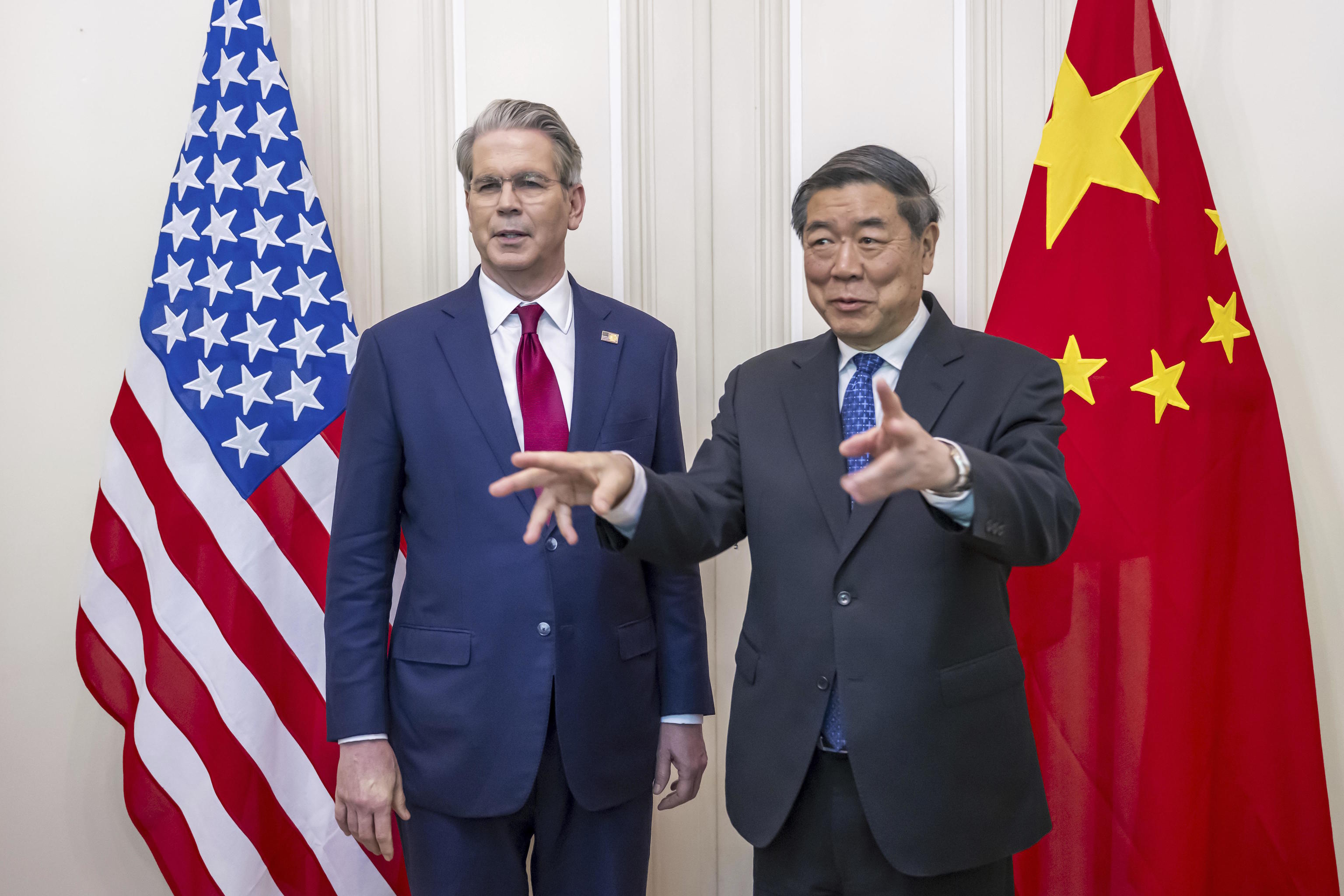"The art of negotiation." This was the title of the book published by Donald Trump in 1987, where he highlighted the successes of the magnate in the real estate market and presented a practical guide on how to negotiate to achieve agreements. This same title was used a couple of days ago by the White House in a statement about the truce reached with China in the trade war. "President Trump and his administration have achieved another good deal for the American people: an initial trade agreement with China that reduces tariffs, ends retaliations, and puts Americans on the path to truly free and fair trade," the statement began.
The document also included statements from Washington's chief negotiator, Treasury Secretary Scott Bessent, who praised the willingness and skill of the Chinese negotiators, revealing the participation in the meetings held last weekend in Switzerland of a big shot from Beijing they were not expecting. "The positive surprise for me was the level of China's involvement in the fentanyl crisis in the United States. They brought the Deputy Minister of Public Security and had a very solid and detailed conversation," Bessent said.
The American referred to Qi Yanjun, a veteran engineer who is the second strongman of the powerful Ministry of Public Security, the equivalent of what would be a Ministry of the Interior. The Chinese government, in a clever move, bolstered its negotiating team with a political figure with the authority to discuss one of the issues that most concern the Trump administration: the fentanyl crisis, the lethal synthetic opioid causing havoc in the US and whose chemical precursors, essential for its production, come from China.
Qi pledged that his country would crack down on companies that send these materials that usually end up in the hands of Mexican cartels, who then produce the fentanyl that ends up in the US. This commitment was key for Washington's concession and for both parties to announce on Monday the suspension for 90 days of most tariffs imposed since April 2. The agreement reduced the additional US tariffs on Chinese products from 145 to 30%, while Beijing's retaliatory duties dropped from 125 to 10%.
These days, the Asian superpower boasts that China has outplayed Trump during the first round of their trade war. Chinese exporters and manufacturers breathe a sigh of relief after US customers have resumed orders they had halted.
In addition to the presence of Deputy Minister Qi, leading the Chinese negotiating team that traveled to Switzerland was Vice Premier He Lifeng, Beijing's top economic official.
"He is a very skilled negotiator. The talks were marked by a sense of fairness and mutual respect," Bessent highlighted in an interview with CNBC after signing the agreement. These statements contrast with the confrontational stance initially maintained by the Trump administration - and also Beijing - and with the tension and abrupt breakdowns in talks that characterized the previous trade war during the Republican's first term, when it took two years (from 2018 to 2020) to reach an agreement.
In 2022, Chinese President Xi Jinping elevated He (70 years old) as one of his four vice premiers, probably the most important of them all because he was appointed director of a key economic body of the Communist Party (CCP), the Central Commission for Finance and Economic Affairs, and also responsible for the office overseeing the financial sector.
Like many other high-ranking officials in China's current political elite, He did not escape Mao Zedong's rural reeducation programs. During the Cultural Revolution, as a teenager, he was sent to work on a farm in Fujian province. Later, he spent a couple of years working at a hydroelectric plant, earned a doctorate in Economics, and ended up as vice mayor of Xiamen city in the south of the giant Asian country. It was in 2014 when he made the leap to Beijing as the CCP's deputy secretary in the important National Development and Reform Commission, the main economic planning agency, which he chaired in 2017.
If in the negotiations in Switzerland Bessent had the US Trade Representative, Jamieson Greer, as his sidekick, He's counterpart was Chinese Vice Minister of Commerce, Li Chenggang (58 years old), another economist and lawyer whose role as a mediator in thawing the tariff war has been praised this week by the Chinese state media. Li, who, unlike He, is fluent in English, served as China's ambassador to the World Trade Organization (WTO).
The trade truce between the world's two largest economies came into effect on Wednesday accompanied by other goodwill gestures from both sides. Beijing lifted some of the restrictions it had imposed on US companies, removing more than twenty companies from its blacklist (export control list). On the US side, the tariff on "de minimis" shipments, exempting imports under $800 from duties, was reduced from 80 to 30%, benefiting mainly small packages from China. This move has provided a significant boost to Chinese e-commerce giants like Shein and Temu, responsible for approximately 30% of the daily packages sent to the US.
